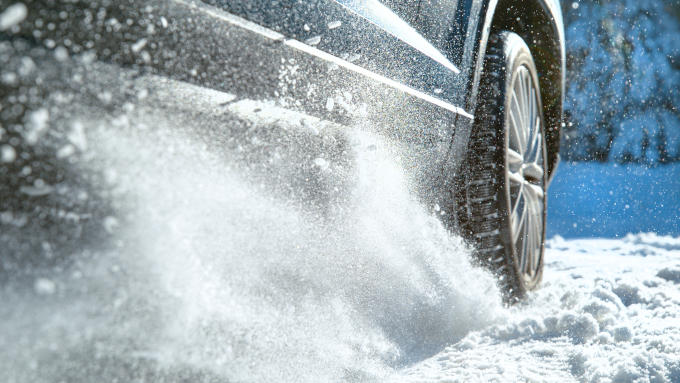Think seat belts are over-rated? Think it's a waste of time to install them?
Seat belts have saved over 15,000 lives! The study shows that this would have been higher if around 2,500 people more wore seat belts.
They're crucial yet the unfortunate truth is a lot of folks don't know how to install them. Seat belt installation is, fortunately, not as difficult as it first looks. It might seem complicated but with our guide, you can get it done with ease.
We'll also throw in a few important safety tips you need to know. Read on and know how to install a seat belt!
1. Always Gather Your Materials and Tools First
Like fixing transmission problems, you must start by preparing all the required materials.
If you're replacing your old seat belts and installing new ones, start by getting the right seat belt type for your vehicle. Often, you need to get the appropriate one for your vehicle make and model. The easiest way to do this is to go to eBay Motors and check on the "Part or Accessory" feature.
Using the feature allows you to search for the compatible seat belts. You need to know the make, model, and year of your vehicle. Once you do, you're most likely going to find the right match.
As soon as the seat belts arrive, you need the right tools to help with the installation. If the vehicle needs the trim removed, you need the right tools for the purpose. You can use the screwdriver, ratchet, and a specialty socket wrench to get rid of the attachment bolts.
You also need to get a torque wrench to make the belt attachments tighter. Check your repair manual and see the recommended torque for your car. Always get a flashlight to see hidden areas and find the points of attachments.
2. How to Install the Front Seat Belt
When you want to know how to install a seat belt, you need to check its type. In most cases, they're three-point seat belts in the front seats. It's one of the few things almost all modern vehicles have as a feature.
When replacing seat belts on the front, you should replace the buckle assembly and shoulder belt attachment. You also need to replace the attachment point located on the opposite side of your seat. After this, you should remove the trim panel to get behind the center pillar molding and find the attachment points.
If you need to loosen the trim panels, you can use trim removal tools. Once you do, you'll find the clips attached to the panel. You can use the same tool and loosen up the clips.
You can use socket wrenches to remove the screwed or bolted on parts. You need to use the right size to ensure that they get to loosen up without much effort. Once done, you can attach the new belt according to the belt routing.
After you install it, use the tool with the proper torque specifications to fasten the attachment bolts.
3. How to Install the Rear Seat Belt
Most trucks, vans, and SUVs have rear seat belts. The process needed to install these implements is similar to their front counterpart. The main difference is the fact that the shoulder belt attachment is in the headliner of the passenger compartment.
You need to be careful when removing the back of the headliner. Otherwise, you might end up damaging it. It's always better to read your vehicle's service repair manual to get a grasp on how it's done.
Look at the bottom of the rear seat to check the seat belt attachments. You can remove the cushion by pushing the seat toward the vehicle's back. It's near the area where the car seat rests on the vehicle floor.
Push on the seat cushion's center and make sure to feel the release of the spring tension. With this, you can lift the seat and get it out of the vehicle. This helps give you access to the seat belt and replace it.
4. When to Install New Seat Belts
In most cases, you might find your seat belts looking functional. It retains its good working condition even after a long period of use. In reality, the seat belt becomes stretched or loses tension after a set amount of time.
There are times when the retractor's internal mechanism becomes more damaged and the belt stitching begins to get ripped. It's important to check your current seat belts and check for frays and tiny cuts.
Reusing old, damaged seat belts can make it a liability while you drive. If you find any form of damage on the belt, make sure to replace it as soon as possible.
5. Get Professional Help
There are times you don't understand the seat belt diagram in the manual. If you don't have the knowledge of car repairs, you might not know what you need to install your seat belts. In these cases, you might be better off calling a professional and call it a day.
Getting professional help will cost you some money. In the long run, it actually prevents you from spending more money on fixing your mistakes. If you mess up replacing the seat belts, you might damage them in the process.
You can't use damaged seat belts since it makes them a safety risk. At times, you might end up doing a botched job and endanger yourself and your family. If you want to make sure you're safe, get professional help and enjoy its full benefits.
Learn Seat Belt Installation Today!
In the past 20 years, around 32,000 vehicle crashes count as fatal. While that only makes up around 0.5% of all car crashes, you don't want to risk becoming a fatality. Seat belts do save lives so it's important that your car has them.
Always take the time to check whether your vehicle's seat belt is functional. Look for signs of wear and tear and replace it as soon as possible. Damaged seat belts add to the risk of injury if you get into an accident.
Do you need seat belt installation? You can schedule an appointment with us since we have the right technical expertise to repair your car. Tell us what type of service you want, and we can do it without problems.










